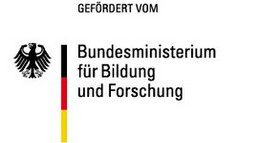Self-efficacy of students with and without immigrant backgrounds: Differential forms of acquisition, diagnostic skills of teachers, and the importance for the development of performance.
The central aim of the project is the analysis of mechanisms that can contribute to improving educational opportunities, especially for children from immigrant backgrounds. Self-efficacy beliefs are a key factor in educational and learning processes.
Funding

Project description
The focus of the study is the construct of self-efficacy beliefs. Although an individual trait, self-efficacy beliefs are influenced by social and institutional factors, and are highly important in terms of the improvement of skills acquisition and educational participation particularly for children from immigrant backgrounds. The central aim of the project is the analysis of mechanisms that would contribute to the improvement of educational opportunities, especially for children with an immigrant background.

Self-efficacy beliefs are a key component of educational and learning processes. Self-efficacy refers to the subjective certainty about competencies and abilities related to the successful implementation and management of new or difficult tasks. Performance and educational success can be predicted to a large extent by subject-specific self-efficacy beliefs.
Under the program, data from students on different educational tracks (e.g. comprehensive schools, advanced secondary school) and from immigrant and non-immigrant backgrounds are examined in a multi-group, multi-level study with two measurement points. The project is divided between the Institute for School Development Research (IFS) and the Leibniz Institute for Science Education (IPN).
The central aim of the sub-project at the IFS in Dortmund is the analysis of self-efficacy acquisition within different contexts and from different sources (school, family, friends), and their differential importance for different groups of students. Another focus is the examination of a possible differential predictive value of self-efficacy for the performance and motivational development of children from immigrant and non-immigrant backgrounds.
At the IPN, the focus is on the diagnostic competencies of teachers. In the framework of the study this includes the extent to which teachers can adequately assess the self-efficacy of their students, and what importance the accuracy of assessment has on instructional design and the change in self-efficacy and performance of the students.
Lead researcher at IFS
Project management
- PD Dr. phil. habil. Miriam M. Gebauer
Project team
- PD Dr. phil. habil. Miriam M. Gebauer
External project partners
- Prof. Dr. Olaf Köller (Leibniz Institute for Science and Mathematics Education)





![[Translate to English:] [Translate to English:]](/storages/ifs-ep/_processed_/8/5/csm_AdobeStock_412860748_9a2dbb816c.jpeg)

